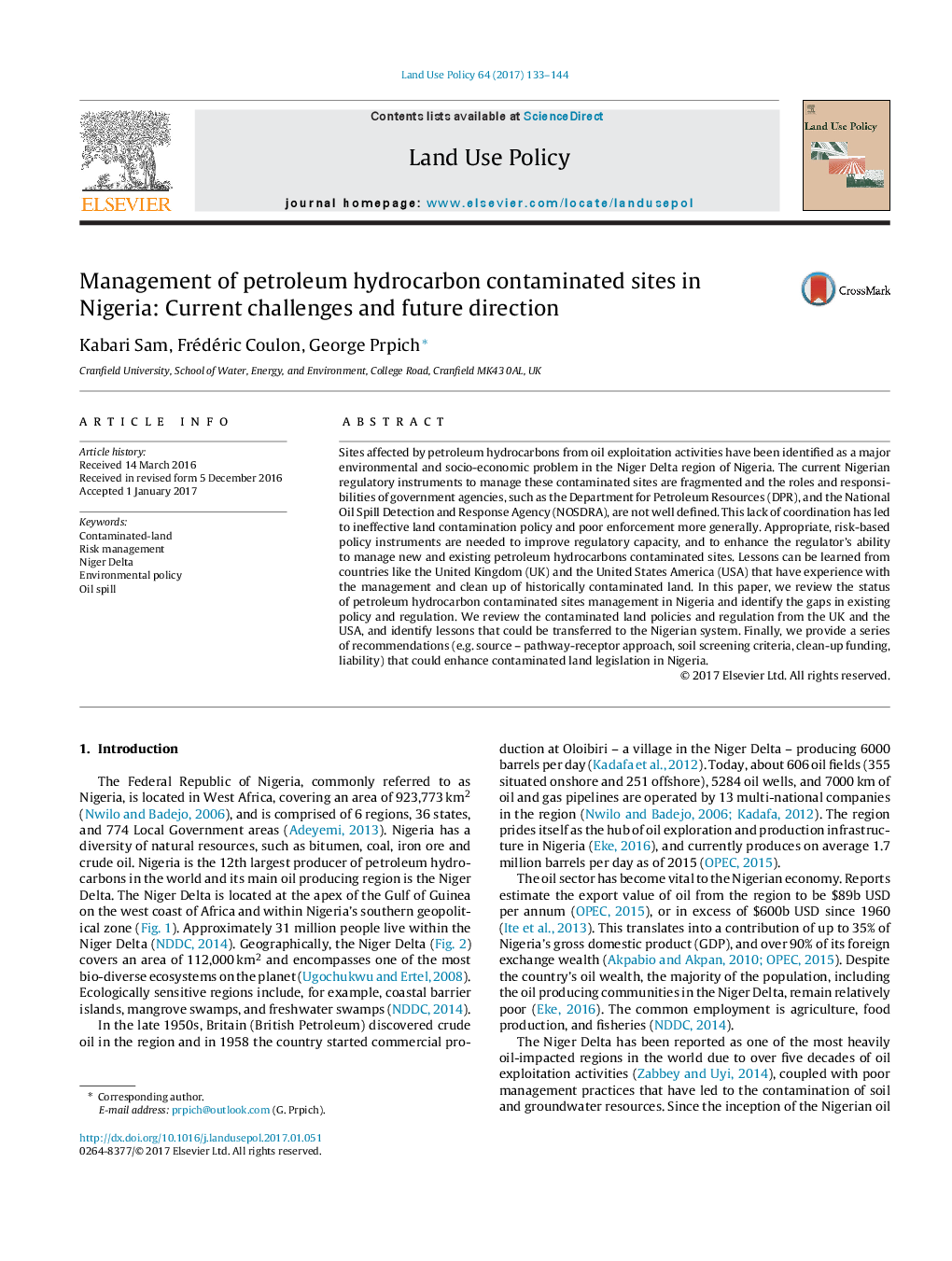ترجمه فارسی عنوان مقاله
مدیریت سایت های آلوده به هیدروکربن نفت در نیجریه: چالش های جاری و جهت آینده
عنوان انگلیسی
Management of petroleum hydrocarbon contaminated sites in Nigeria: Current challenges and future direction
| کد مقاله | سال انتشار | تعداد صفحات مقاله انگلیسی |
|---|---|---|
| 103539 | 2017 | 12 صفحه PDF |
منبع

Publisher : Elsevier - Science Direct (الزویر - ساینس دایرکت)
Journal : Land Use Policy, Volume 64, May 2017, Pages 133-144
ترجمه کلمات کلیدی
آلوده به زمین، مدیریت ریسک، دلتا نیجر، سیاست زیست محیطی، نشت نفت،
کلمات کلیدی انگلیسی
Contaminated-land; Risk management; Niger Delta; Environmental policy; Oil spill;

